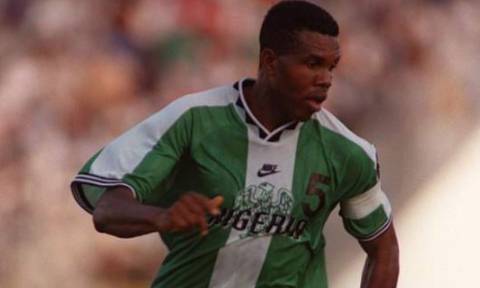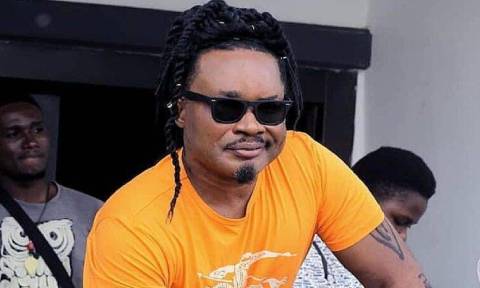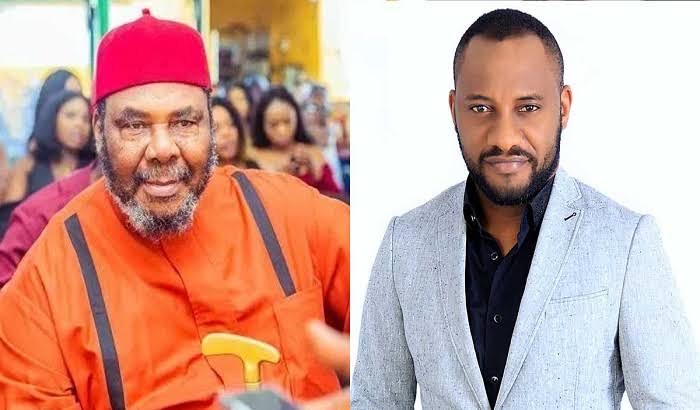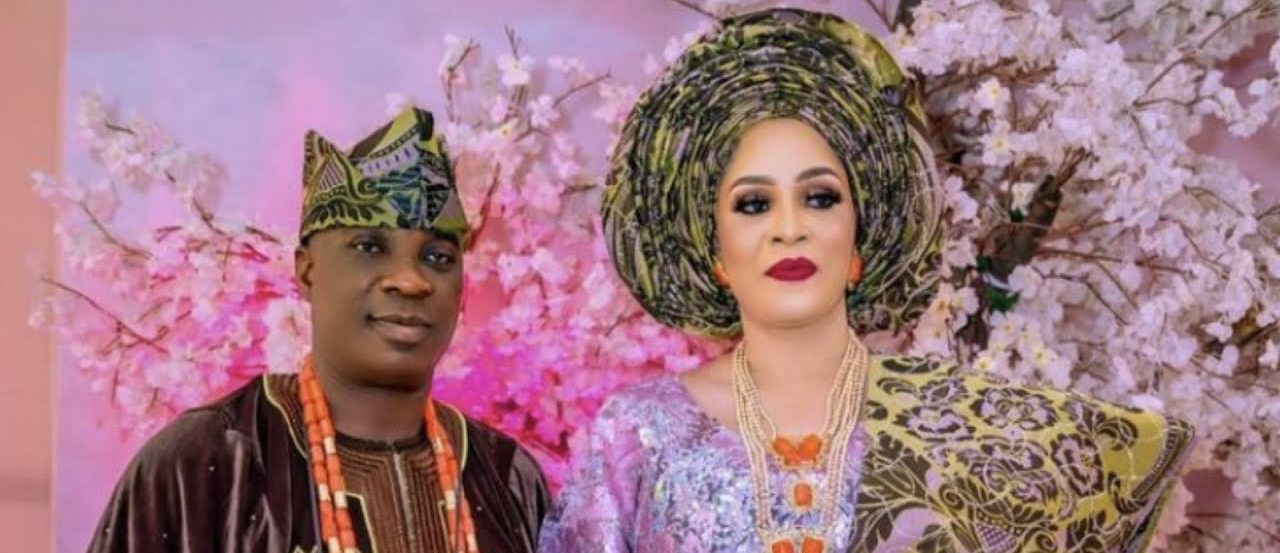The ex-Super Eagles defender, Kingsley Obiekwu who is now a commercial driver in Nigeria has said some of his former teammates pretend they do not know him because of his poor living condition.
Obiekwu was part of the Nigerian Dream Team, with the likes of Nwankwo Kanu, Sunday Oliseh, Augustine Okocha and Emmanuel Amunike, which recorded the country’s historic first soccer gold medal win at the 1996 Olympics.
His football career suffered a devastating setback when he was diagnosed with “enlargement of heart” after signing a contract with a Dutch football club, Go Ahead Eagles FC.
That was his first taste of international football at a club level.
Because of this, he could not go further in football within and outside Nigeria. And when life became tough for him, he had to resort to commercial driving in Enugu State, Nigeria’s South-east, in 2019 in order to earn a living. This was 23 years after the heroic achievement in the Atlanta Olympics.
He combines the transport business with a coaching job at FC Ingas, a lower division club in Enugu.
“Most of the time when I come across my former teammates, they will pretend they don’t know me or I didn’t even play with them,” Obiekwu said in an interview with Premium Times, with a bewildered expression, in his Enugu residence.
Obiekwu who is 47, said apart from Nwankwo Kanu, other teammates were unconcerned about his plight.
The ex-defender recalled with sadness how a former teammate, who was staying in Port Harcourt, rebuffed his request to spend a night in his house when he was stranded in the city in 2000, despite the fact that both of them played in a match against Ghana the previous year.
As a commercial driver, Obiekwu usually meets police officers manning checkpoints on the road.
He initially thought the officers would accord him some respect as holder of national honour, Order of Niger.
“They (officers) mocked me, they said I should go and sit down because it is none of their business,” Obiekwu said while recalling an encounter he had with some police officers.
Obiekwu talked about how the heart condition affected him.
“That enlargement of heart causes what they called palpitation of the heart. They told me the problem with the condition was that I would be getting tired before other players. (And) that’s what I am experiencing,” he said.
Obiekwu experienced limited playing time at the Dutch club because of the heart condition until he left the club in 1998 when his contract expired.
His heart condition, including his recurring knee injury, forced him to retire from football at the age of 30, unable to reach the pinnacle of his career.
“The story about me driving a Sienna and loading a bus in Abakpa Park is true. There is nothing to hide. That’s what I do,” Obiekwu said.
“I have a Sienna and I have to use it to sustain myself and my family while I wait for the (Nigerian) premier league club to coach.”
Taking to commercial driving was a difficult decision for the former defender, he said.
But his wife’s support and prayers, according to him, provided the needed push into the business that many Nigerians may likely consider as unfitting for a man who was once celebrated as a football hero by the government and people of Nigeria.
“I am not proud of it, but my wife supported me. She took away the shame and encouraged me to do whatever thing, as long as it is not illegal, to help the family. I had to also throw the shame away,” he said.
Obiekwu’s 2000 model Toyota Sienna carries a maximum of seven passengers. He makes N7,000 (about $16) per trip.
Okoh Onyeka, a 400 level student of Mass Communication, Godfrey Okoye University, Enugu, said he cried when he hugged Mr Obiekwu while the former footballer was loading passengers in buses at Nsukka Park.
“Life can be cruel. We can help lift him again if he is willing. That environment is not for him,” Onyeka said in a Facebook post.
Obiekwu had struggled in vain to land a coaching job in any of the clubs in the Nigeria premier league.
He has a pro-licence certificate from the United Kingdom where he stayed for a four-year coaching course after retirement, but the Nigerian clubs would always ask him to produce a CAF Grade A or Grade B certificate to be considered.
After staying without a job for years, following his return to Nigeria, life became difficult for him and his family.
He said he has, at several times, put up his house – a three-bedroom bungalow – for sale to raise money that could enable him to start a business but it was difficult to get a buyer.
He built the house during his glory days in football.
Obiekwu said he is owed close to N6 million by some clubs he coached previously in Nigeria, Egypt and the Republic of Benin.
The former footballer is married and has five children, four boys and one girl. Two of the boys are 400-level students at the Enugu State University of Science and Technology.
Obiekwu said the Nigerian government has turned its back against him and other footballers who have brought glory and honour to the country.
“Most of us that played for Nigeria in the past have been neglected,” he said.
“What I would have wanted the federal government to do is that most of us that played and are given the honour, the honour needs to come with ‘something’ at the end of every month, at least to encourage and appreciate us.”
He said the promises made to him and his teammates by the federal and state governments were yet to be fulfilled, and that includes a promise by the Delta State Government to give plots of land to the members of the Dream Team.
After Obiekwu’s story went public, Ahmed Musa, the Super Eagles captain, sent a donation of N2 million to him.



















